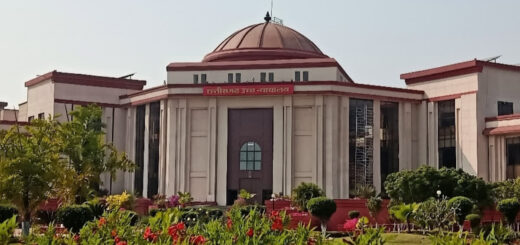The Supreme Court has issued a notice regarding a Public Interest Litigation (PIL) filed by Dr. Sanjay Jain, a visually impaired Law Professor at the National Law School of India University and a prominent advocate for disability rights

The PIL calls for full enforcement of the Rights of Persons with Disabilities (RPwD) Act, 2016. This important law, which took effect in April 2017, was designed to replace the 1995 Act and provide better rights and protections for people with disabilities. However, Jain argues that the implementation has been largely ineffective across the nation. The Bench, led by Chief Justice DY Chandrachud along with Justices JB Pardiwala and Manoj Misra, acknowledged the issue of non-implementation of the RPwD Act. The Court ordered, “Issue Notice. Returnable on…”. Advocate Thulasi K Raj represented the Law Professor during the hearing. The PIL, submitted through Advocate on Record Mohammed Sadique T. A., emphasizes the need for proper implementation of the RPwD Act, particularly concerning reservations, state advisories, and job opportunities, to protect the fundamental rights of disabled individuals under Articles 14, 15, 19, and 21 of the Constitution. The petition states, “The lack of full and effective implementation of the provisions of the RPWD Act, 2016, including those on reservation, violates the fundamental rights of persons with disabilities and denies them a life of dignity, equal opportunity, and non-discrimination, which they deserve.”
Jain wants government officials, especially in Civil Services, to better understand disability rights and challenge ongoing ableist views. He believes these biases often define disabled people by their disabilities, making them seem “less than” able-bodied individuals. The petition refers to several reports, including those from the Disability Rights Foundation and the 2021-2022 annual report by the Office of the Commissioner for Persons with Disabilities, showing that many states are not enforcing the law properly. Many have not set up specific rules or advisory boards, and some haven’t even submitted required compliance reports. Additionally, an article included in the petition highlights that lack of support and transportation are major obstacles to employment, leading to high unemployment rates among disabled people. Jain stressed the need to adopt a social model of disability instead of just a medical one. He cited scholar Tom Shakespeare, who argues that the social model sees disability as a result of societal barriers, not personal shortcomings.
There is a need to recognize that some prejudices come from an ableist viewpoint, which sees people as defined by their disabilities. This thinking also suggests that disabled individuals are less valuable than those who are able-bodied. Both of these views need to be challenged. Additionally, it is important to differentiate between the social and medical models of disability. Tom Shakespeare explains that the social model views disability as a result of societal barriers faced by people with impairments, while the medical model focuses on individual limitations. A strong disability rights policy should adopt a tailored approach. According to the PIL, the current strategy of the RPwD Act lacks this necessary focus. The PIL emphasizes that a solid policy based on the social model is crucial for fulfilling the Act’s objectives and ensuring that disabled individuals are treated with dignity, free from discrimination, and given equal opportunities. It calls for both state and central authorities to address these systemic issues so that the rights and support promised by the RPwD Act are fully realized for disabled persons.
Cause Title: Dr. Sanjay Jain v. Union of India and Ors. [W.P.(C) No. 705/2024; Diary No. 45995/2024]









